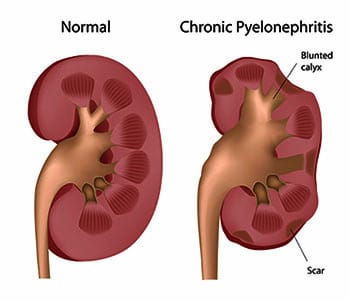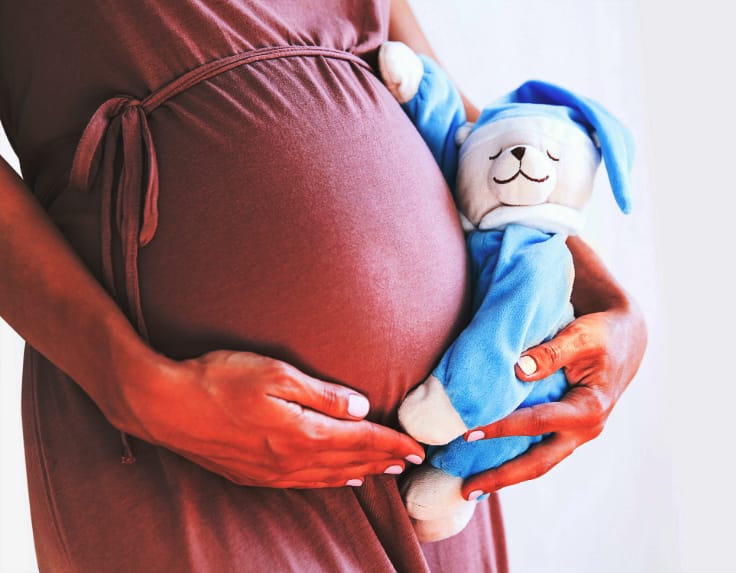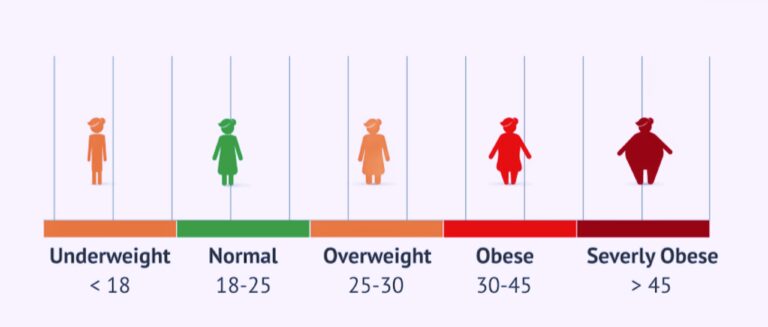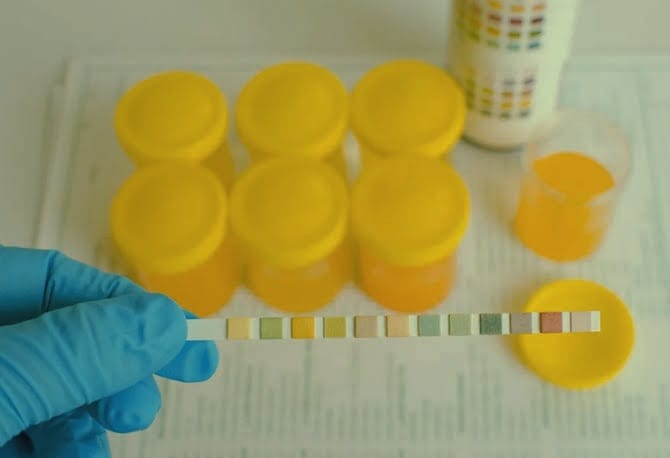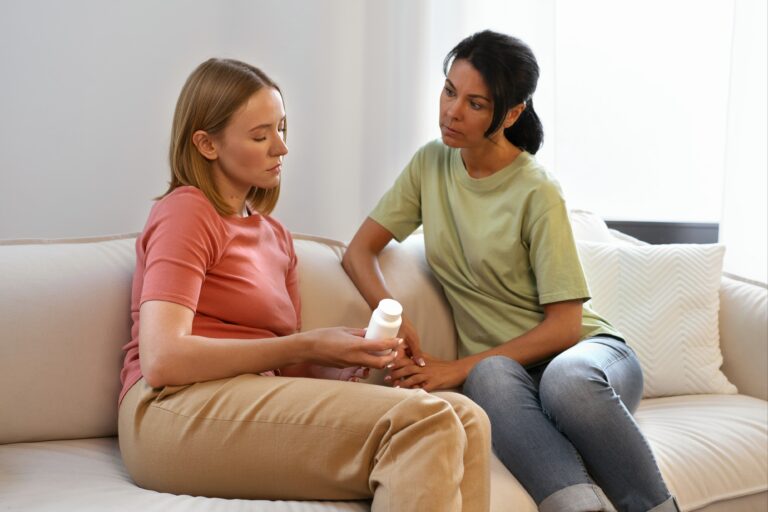Kidney Infections in Pregnancy
When germs enter the urinary system and ascend to the kidneys, it can lead to a kidney infection, also called pyelonephritis. Hormonal fluctuations that might impact the urinary system put pregnant women at higher risk of UTIs.
Symptoms of Pyelonephritis
- Back or Side Pain have pain or discomfort in the lower back or side (flank) of the abdomen.
- Fever one typical sign of pyelonephritis is a high temperature.
- Painful Urinating Pyelonephritis patients may have dysuria, or pain and discomfort during urinating.
- Nausea feeling unwell.
- Vomiting being ill.
- Urine That Seems Foul-Smelling or Hazy the urine may smell foul or seem hazy.
Causes of Pyelonephritis
A kind of urinary tract infection (UTI) called pyelonephritis includes inflammation of the kidney(s). Bacteria, most often Escherichia coli (E. coli), which ordinarily reside in the digestive system, are usually the reason. Infection and inflammation can result from the bacteria getting into the urinary system and climbing up to the kidneys.
Women are more likely to get pyelonephritis because of their shorter urethras, which make it simpler for germs to enter the kidneys. Due to the increased risk of kidney infection associated with frequent intercourse, it is also more common among younger, sexually active women.
Treatment of Pyelonephritis
Antibiotics must be used quickly to treat pyelonephritis in order to prevent kidney damage and systemic dissemination. You will probably be admitted to the hospital if you have pyelonephritis and are pregnant so that medical professionals may obtain routine blood and urine samples. You’ll most likely receive antibiotics intravenously, and your doctor may advise you on which ones are safe to take during pregnant.

